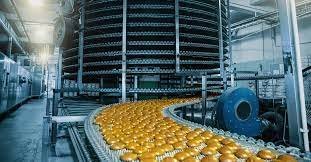Purchase Assistant – Food and Agricultural Commodities

In the dynamic landscape of food and agricultural commodities trading, efficient procurement is paramount for businesses to thrive. The intricate supply chains, fluctuating market prices, and diverse range of products demand robust systems to streamline the purchasing process. With technological advancements, the role of Purchase Assistant software has become indispensable, revolutionizing how companies manage their procurement operations.
The Evolution of Procurement in Food and Agriculture
Traditionally, procurement in the food and agricultural sectors relied heavily on manual processes, including phone calls, emails, and paperwork. This approach often led to inefficiencies, delays, and increased risk of errors. Moreover, with globalization and the expansion of markets, the complexities of procurement grew exponentially, necessitating a more sophisticated solution.
The emergence of Purchase Assistant software marked a significant shift in how businesses approach procurement. These intelligent systems leverage technologies such as artificial intelligence (AI), machine learning (ML), and data analytics to automate and optimize various aspects of the procurement process.
Understanding Purchase Assistant: A Game-Changer in Procurement
Purchase Assistant for food and agricultural commodities is a specialized software designed to streamline and enhance the procurement operations of companies operating in these sectors. It offers a wide array of features and functionalities tailored to the specific needs and challenges of procuring perishable and non-perishable goods.
- Market Analysis and Forecasting: Purchase Assistant employs advanced algorithms to analyze market trends, price fluctuations, weather patterns, and other relevant factors that impact the supply and demand of food and agricultural commodities. By leveraging historical data and real-time information, it provides accurate forecasts, enabling businesses to make informed purchasing decisions.
- Supplier Management: Managing a network of suppliers is a complex task, especially in the food and agriculture industry where product quality and reliability are paramount. Purchase Assistant facilitates supplier onboarding, performance evaluation, and relationship management. It helps businesses identify and collaborate with trusted suppliers while ensuring compliance with regulations and standards.
- Automated Procurement Processes: Manual procurement processes are prone to errors and inefficiencies. Purchase Assistant automates repetitive tasks such as purchase order generation, invoice processing, and inventory management. This not only reduces the risk of errors but also frees up valuable time for procurement professionals to focus on strategic activities.
- Inventory Optimization: Maintaining optimal inventory levels is critical in the food and agriculture sector to avoid stockouts, minimize wastage, and ensure product freshness. Purchase Assistant utilizes predictive analytics to optimize inventory levels based on demand forecasts, production schedules, and storage capacity. It helps businesses strike the right balance between supply and demand, thereby reducing carrying costs and enhancing profitability.
- Compliance and Risk Management: Regulatory compliance and risk mitigation are fundamental aspects of procurement in highly regulated industries such as food and agriculture. Purchase Assistant ensures adherence to industry standards, food safety regulations, and sustainability practices. It also identifies and mitigates potential risks such as supply chain disruptions, quality issues, and market volatility.
Benefits of Implementing Purchase Assistant
The adoption of Purchase Assistant offers numerous benefits for businesses operating in the food and agriculture sector:
- Cost Savings: By optimizing procurement processes, minimizing wastage, and negotiating favorable terms with suppliers, Purchase Assistant helps businesses reduce costs and improve profit margins.
- Enhanced Efficiency: Automation of routine tasks, real-time data analysis, and predictive insights enable procurement teams to work more efficiently and focus on strategic initiatives.
- Improved Supplier Relationships: Effective supplier management capabilities foster stronger relationships with suppliers, leading to better collaboration, higher product quality, and timely deliveries.
- Better Decision-Making: Accurate market forecasts, demand projections, and inventory insights empower businesses to make data-driven decisions that align with their strategic objectives.
- Risk Mitigation: By identifying and addressing potential risks proactively, Purchase Assistant helps businesses mitigate supply chain disruptions, regulatory compliance issues, and other challenges.
Case Study: The Impact of Purchase Assistant on a Food Processing Company

XYZ Foods, a leading food processing company, implemented Purchase Assistant to streamline its procurement operations. By leveraging the software’s advanced features, XYZ Foods achieved the following results:
- Reduced procurement cycle times by 30%.
- Cut inventory holding costs by 20% while maintaining optimal stock levels.
- Improved supplier performance and reliability, leading to fewer instances of supply chain disruptions.
- Enhanced decision-making with accurate market insights and demand forecasts.
- Ensured compliance with food safety regulations and sustainability standards.
Conclusion
In conclusion, Purchase Assistant has emerged as a game-changer in the food and agriculture industry, revolutionizing how businesses manage their procurement operations. By leveraging cutting-edge technologies and advanced analytics, Purchase Assistant enables companies to optimize processes, reduce costs, mitigate risks, and make informed decisions. As the industry continues to evolve, embracing innovative solutions like Purchase Assistant will be essential for staying competitive and driving growth in the dynamic world of food and agricultural commodities trading.



